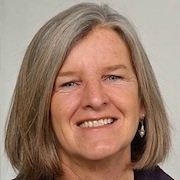Margaret Urban Walker Marquette University Margaret Urban Walker holds the Donald J.
Schuenke Chair in Philosophy at Marquette University. Her research centers on
ethics, including ethical theory, moral epistemology and moral psychology,
feminist ethics, and questions of accountability and repair of moral
relationships. Her current research interests are in justice and repair following conflict, repression, and historical injustice. Her book Moral Repair: Reconstructing Moral Relations After Wrongdoing (Cambridge University Press, 2006) offers a framework for reviving the hope and trust on which moral relations depend through accountability, forgiveness, and amends. Her 2010 Aquinas Lecture at Marquette University, What is Reparative Justice? (Marquette University Press, 2010), presents the outlines of a conception of doing justice by reparations in response to violence and injustice. She continues to develop a theory of the moral foundations of reparations, the social and political conditions of moral accountability, and the role and importance of truth-telling in the wake of violence, oppression, or injustice. She has worked with the International Center for Transitional Justice on projects on gendered violence and reparations, and truth-telling in the context of political transitions after mass violence. She was led to her work on moral repair by her earlier studies of the impact of social inequalities and oppression on the ways we understand morality, both in ethics and in everyday life. Her books Moral Understandings: A Feminist Study in Ethics, 2nd Edition (Oxford University Press, 2007) and Moral Contexts (Rowman and Littlefield, 2003) explore relations between social power, moral identities, and moral understandings. She defends the view that our moral understandings are always embedded in socially and historically specific practices of responsibility, but that these practices and understandings can be, and must be, critically assessed. |
Home > Highlighted Philosophers >

